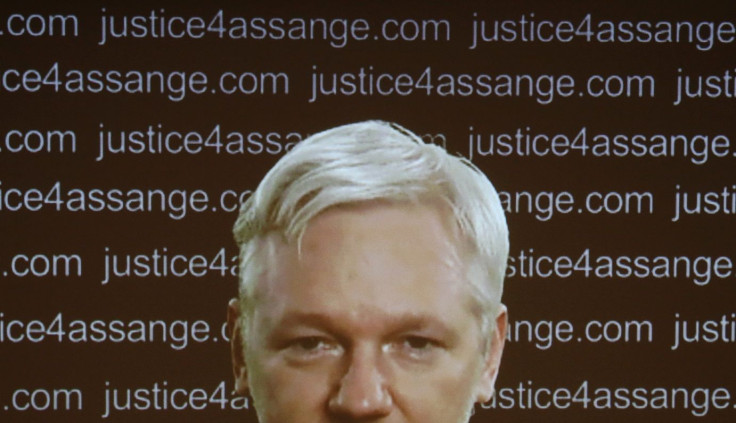Security becomes a pressing concern in this modern technological era as IMF WikiLeaks surfaces

The second day of April 2016 marked the day when non-profit, journalistic site WikiLeaks published the supposed internal meeting by IMF’s top officials. Poul Thomsen, the head of the IMF's European Department, and Delia Velkouleskou, the IMF Mission Chief for Greece, and IMF official Iva Petrova held a teleconference last March 19 regarding issues on Greece’s debt.
The agenda involves the Internal Monetary Fund considering two options for Germany. One is forcing Germany’s leadership to grant debt-relief for Greece while the other is allowing the IMF to exit Athens’ bailout program that has run for six years and also, putting pressure on British Chancellor Angela Merkel.
However, implications of IMF’s decision may paralyse the European Union (EU) in the first half of 2016, especially with an impending “Brexit” referendum on June 23. Brexit or British Exit refers to Britain possibly leaving the European Union.
According to a CNBC report, the teleconference between two IMF top officials was a clear indication of the IMF’s intention to leave Greece’s US$97 billion (AU$128 billion) solely for the European Union to solve, and steer clear of the failed program which garnered global criticisms.
This also puts the IMF in global financial jeopardy as non-European IMF creditor countries will consider IMF’s stand on Greece’s bailout as a violation of policies. Conversely, purported threats to pull out of the Greek bailout have been strongly denied by the IMF, according to Reuters. IMF Director Christine Lagarde, denied the allegations and asked Greece’s prime minister through a letter to continue debt talks even in the face of destabilisation from the leaked reports.
On another note, during the call, Thomsen also wants to put pressure on German Chancellor Angela Merkel to side with the IMF’s options on either allowing Greece’s debt relief or IMF’s exit. Add to the increasing refugee issues which put Berlin in intense political pressure.
In the published WikiLeaks transcription, Merkel was identified as a proponent of the IMF participation in the Troika, which is a designation of the triumvirate representing the EU in its foreign relations. Since then, the past several days portrayed unrestrained drama, threats and blackmails on nations involved in the WikiLeaks propaganda that surfaced.
For the Greek government, the leaked reports were part of IMF efforts to blackmail Athens to possibly give in to austerity measures such as pension cuts that it once denied. The IMF was also accused of deliberately causing the Greek debt crisis. The leaked reports raised possible security breach concerns and the credibility of negotiations as evidenced in Prime Minister of Greece, Alex Tsipras’ letter to Lagarde.
Trust Revolution
Issues on destabilisation and blackmailing were raised following WikiLeaks report, but more than that, issue on security and credibility of news were questioned.
Following disclosures from Edward Snowden and other mass surveillance leaks is a trending social concern called digital privacy, which is the protection of information of private citizens using digital platforms. In this highly technology-dependent era where increased mobile connectivity has already become a lifestyle, the adaption of information security should become a top priority as well as credibility of news.
Similarly, issues on credibility of news emerged following the IMF WikiLeaks. A recent Oxford University Press’s blog post discussed the difference between trusted media organisations and WikiLeaks. According to the blog, there is quite a difference in trusted media sites such as The Guardian and The New York Times compared to WikiLeaks. Both newspapers have had long tradition of investigative journalism and have engaged in serious fact-checking, editing suitable for their audiences and signing their names. In some cases, issues retraction, apologise for damages or even pay for them.
Wikileaks data are gathered from leakers and hackers through secure platforms that Wikileaks helped design while still keeping the editors’ names private.
Even mainstream media has been questioned for its credibility and honesty in its attempt to adapt to emerging technologies in conjunction with giving in to people’s demand for news anytime, anywhere. Journalism today has evolved, and even The Media Center dubbed it as the “Golden Age of Journalism.” Even emerging mobile news agencies, such as Born2Invest, Bloomberg and Business Insider, gather news from the most trusted sources and curate them into timely and efficient reports.
Even in the wake of the IMF Wikileaks report, there are still underlying reasons behind every leader’s decision on matters pertaining to economic development, migration issues and even issues on security. On the side of media and other news delivering platforms, if everyone did their responsibilities regarding fact-checking, source validation and thoroughly investigate news laid before them, then there would be no issues on credibility. Indeed technology has more far reaching effects other than opening communication channels, it has opened people’s minds to events that are happening around the world.






